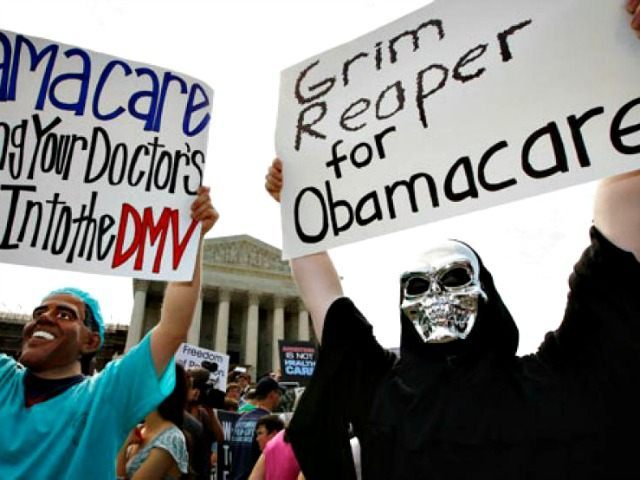On Thursday, House Republicans failed to muster the necessary votes to pass a new version of the American Health Care Act.
This time, the moderate Republicans were the problem: the Freedom Caucus approved the new bill. Byron York, writing in the Washington Examiner, observed that there were “a lot” of Republicans, primarily in contested congressional districts, who do not want to repeal Obamacare for fear of the political consequences next November.
Speaker of the House Paul Ryan has declared that he does not want to be bound by an “artificial” deadline. But he and his caucus face a very real deadline: November 6, 2018.
That is the date of the 2018 midterm elections, which the GOP could very well lose if it fails to repeal Obamacare — or if it replaces Obamacare with something worse. And given the reality of campaigning, Ryan’s deadline is sometime before November. If it is not done by next summer, he could be.
As observed before, there is a method to the madness of repeated failure on tackling Obamacare: President Donald Trump is showing each congressional faction, in turn, the downside of failing to solve the problem. But he will not convince all of the factions to come to an agreement unless the alternative is worse.
And right now, all of the factions — Democrats, conservative Republicans, and moderates — assume that if Congress fails, at least they will keep their seats.
There is only one way to change their incentives, and that is to change the default option — to make sure Obamacare is repealed, whether or not Congress comes up with a plan to replace it.
Rep. Mo Brooks (R-AL) has already filed aone-line bill that repeals Obamacare totally — effective Dec. 31. That would give Congress, and health care stakeholders, eight months to negotiate. The bill could extend that period — say, to Mar. 21, 2018, Obamacare’s eighth anniversary.
Once set into law, however, the deadline could never be changed. That is because a vote to extend the deadline would effectively be a vote for Obamacare. And that is a vote not even Democrats would dare to take in an election year.
The deadline would also force Democrats to the negotiating table, because faced with a choice between the full repeal of Obamacare on the one hand, and a repeal that keeps some pieces of Obamacare on the other, they will take the latter.
So why would Congress agree to a deadline in the first place? Because the president could threaten to veto any future budget until Congress agrees to pass the Brooks bill. Voters hate government shutdowns — and the president is loath to risk them, as this week showed — but if Trump can frame the question around Congress’s refusal to accept a deadline, he can prevail. After all, most other Americans have to work to deadlines all of the time: why should Congress not?
That is how President Barack Obama convinced Congress to vote for the Budget Control Act in 2011, on the eve of default. He proposed the sequester — automatic spending cuts that would (and did) kick in if Congress failed to agree long-term spending cuts after a certain date. Though he spent the next several years decrying the sequester, it resolved the debt ceiling crisis, and marked the most significant reductions in federal spending since the end of the Korean War.
The Brooks bill could provide President Trump with similar leverage. After the current budget crisis passes, the next budget must be passed by the end of September. President Trump could declare that the Brooks bill — or some version of it — must be passed before then, or he will veto any budget.
That will place the onus firmly on Congress to accept a deadline, and repeal of Obamacare as the default if negotiations fail. Then, finally, serious negotiations will begin.
Joel B. Pollak is Senior Editor-at-Large at Breitbart News. He was named one of the “most influential” people in news media in 2016. He is the co-author of How Trump Won: The Inside Story of a Revolution, is available from Regnery. Follow him on Twitter at @joelpollak.

COMMENTS
Please let us know if you're having issues with commenting.